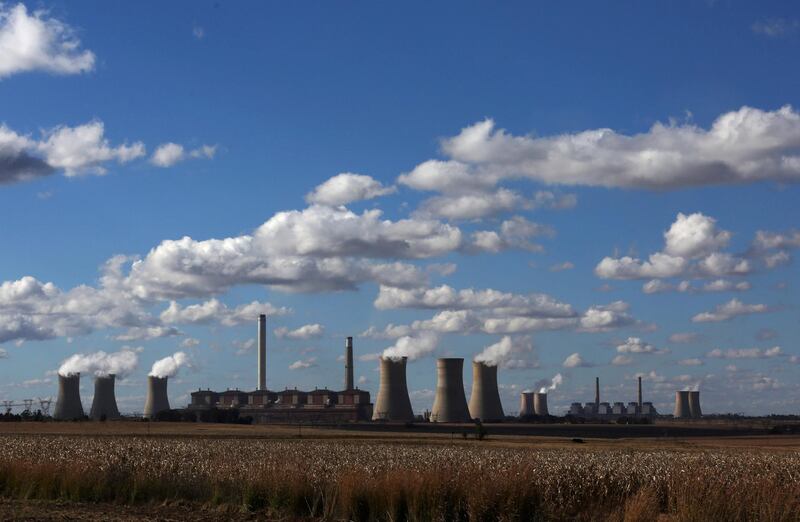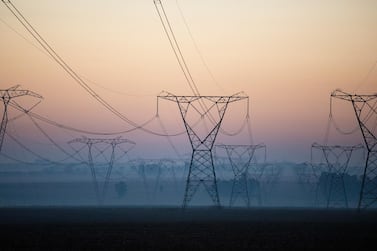Crisis-hit South African power company Eskom was handed an additional 59 billion rand (Dh14.9bn) lifeline by parliament on Tuesday, prompting criticism from opposition parties who described it as a "blank cheque".
The special bill passed by parliament to grant the funding was first proposed by Finance Minister Tito Mboweni in July as Eskom struggled to service its ballooning 450 billion rand debt pile and keep the lights on throughout 2019 as its creaking fleet of coal-fired plants buckled.
Eskom unleashed another bout of nationwide blackouts last week following repeated power cuts in February and March, which dragged the economy into contraction.
Mboweni said in July that Eskom should adhere to strict conditions to receive the bailout, including assurance that it would be used only to service debt and not for operational costs.
The multi-party Standing Committee on Appropriation, responsible for oversight of the bill, failed to agree on the conditions and early in October opted leave the Finance Minister's draft bill unchanged.
"The bill as it stands is a blank cheque that will blow up the deficit," the main opposition Democratic Alliance said on Tuesday, echoing objections of other parties.
Speaking at the parliamentary debate on Tuesday Mboweni did not directly address the matter of conditions but hinted that Eskom's management would come under closer scrutiny.
"One of the key issue we need to solve is to appoint the right people to run Eskom. Appoint the right board of directors and a competent management team," he said.
"Then we must be in a position to hold that board of directors and management team accountable. The problem at Eskom is not just financial."
Eskom has been without a permanent chief executive since Phakamani Hadebe resigned in May, citing unbearable pressure.
Hadebe was the 10th chief executive to quit the state-owned company in a decade in what has proved something of a revolving door of top executives and board members as treasury and presidential inquiries into graft and mismanagement deepened.
The special appropriation bill will go to parliament's second house for approval before being sent to President Cyril Ramaphosa for his signature and enactment.







